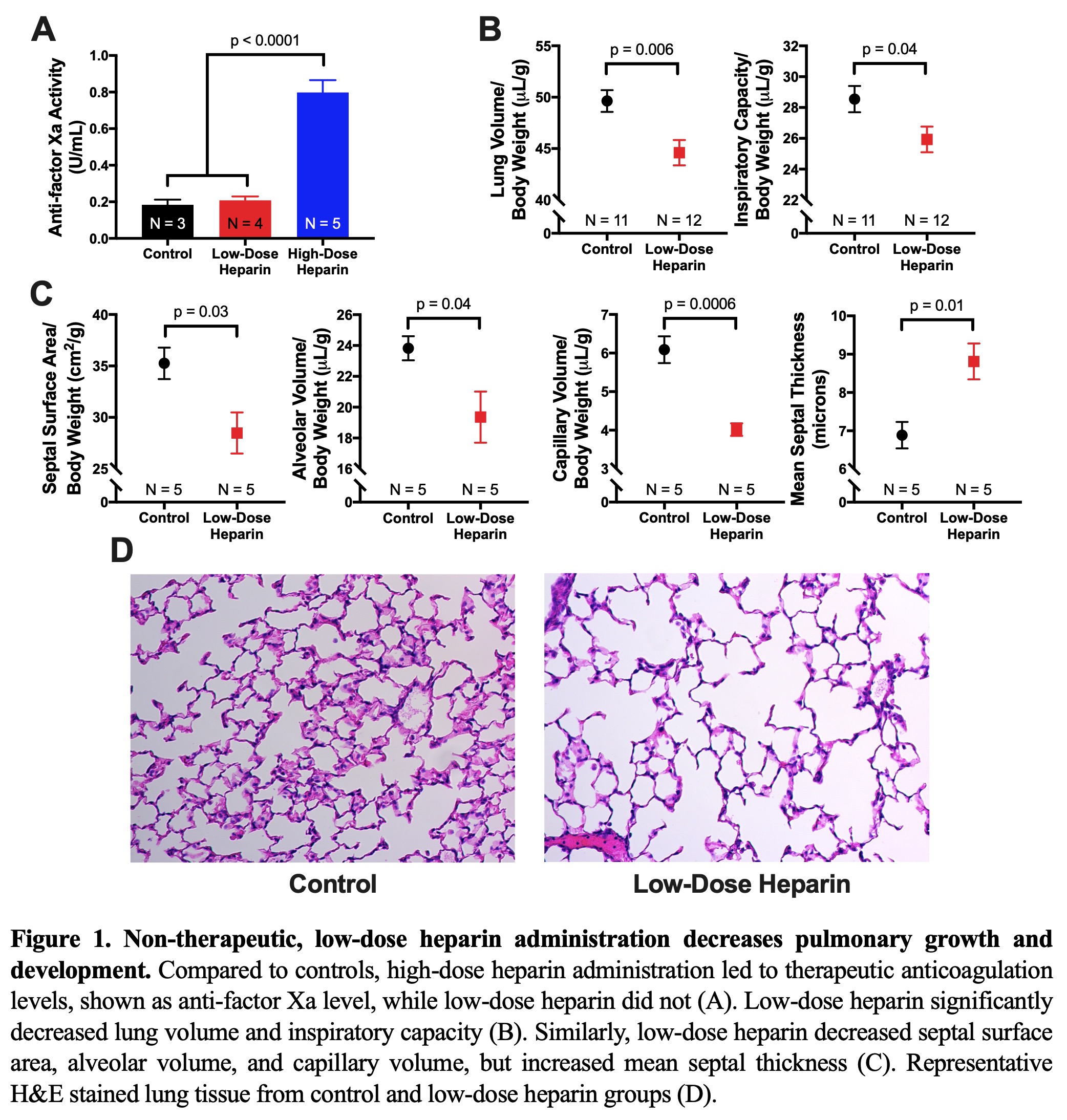Non-Therapeutic, Low-Dose Unfractionated Heparin Administration Inhibits Pulmonary Growth and Development
*Victoria H Ko, *Lumeng J Yu, *Jordan D Secor, *Duy T Dao, *Amy Pan, Mark Puder
Boston Children's Hospital, Boston, MA
Objective: Pulmonary hypoplasia (PH) is a major cause of morbidity and mortality in newborns with congenital diaphragmatic hernia (CDH). PH is characterized by immature pulmonary growth and development. Neonates with severe PH necessitating ECMO and therapeutic anticoagulation have mortality rates of nearly 50%. Previously, we demonstrated that therapeutic heparin administration following pneumonectomy led to significantly decreased compensatory lung growth in mice. While only a minority of neonates will receive therapeutic heparin, many will receive non-therapeutic doses for a variety of reasons. Here, we investigated the effect of non-therapeutic, low-dose heparin administration on pulmonary growth and development. Design: Mice were randomized into three groups, treatment with normal saline (control), low- (250U/kg), or high-dose (500U/kg) heparin. Setting: Laboratory. Participants: Eight-week old C57BL/6 mice. Interventions: A non-surgical cohort received control, low-, or high-dose heparin via intraperitoneal injections. A surgical cohort underwent pneumonectomy followed by daily intraperitoneal injections of control or low-dose heparin. Main Outcome Measures: Anti-factor Xa levels were measured in the non-surgical cohort. Lung volume, inspiratory capacity, and morphometrics were evaluated in the surgical cohort on post-operative day eight. Results: High-dose heparin administration led to therapeutic anti-factor Xa levels while control and low-dose heparin administration did not. Low-dose heparin significantly decreased lung volume, inspiratory capacity, alveolar volume, septal surface area, and capillary volume, but increased mean septal thickness. Conclusions: Non-therapeutic, low-dose heparin administration significantly inhibited pulmonary growth and development. Therefore, both therapeutic and non-therapeutic heparin administration in neonates with CDH-associated PH or other hypoplastic lung disease may need to be reconsidered.

Back to 2020 Abstracts
